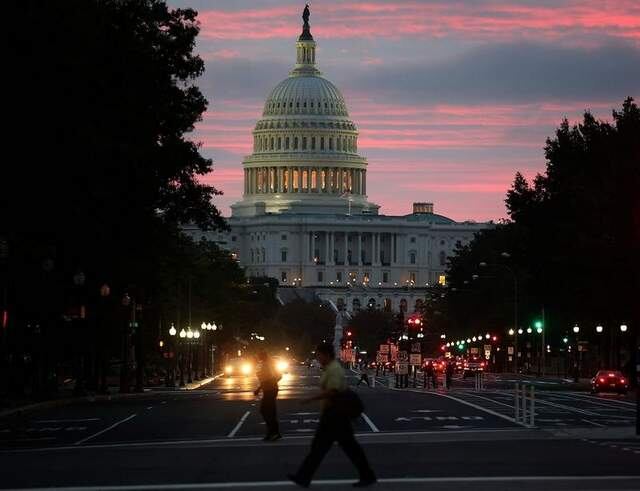Health care premiums are about to get a lot pricier for many federal retirees.
There will be no cost-of-living-adjustment increase for 2016 after Consumer Price Index numbers for the third quarter came in under the mark, we learned Thursday. As a result, 30 percent of Medicare Part B beneficiaries — which receive funding for physician and outpatient hospital services by Social Security's Supplementary Medical Insurance Trust Fund, and which include many federal retirees—will see health insurance premiums shoot up from $104.90 a month to $159.30. That's a more than 50 percent hike.
"That would be a big problem for a lot of people," said Walt Francis, an economist and expert on the Federal Employees Health Benefits Program. "They face choices like, 'Do I drop Part B?' Or, for example, some older federal employees who are thinking of retiring next year, they may want to postpone their retirement so they can sign up for Part B a year later."
Here's some background: COLA adjustments are determined, in part, by the CPI-W, which determines the price of goods and services by urban wage earners and clerical workers. The COLA level increases if the third quarter CPI-W numbers are more than the previous year's numbers. If the CPI-W remains at or below than the previous year, the COLA benefit remains the same.
September's CPI-W numbers fell 0.3 percent, dropping the annual rate to 232.661. Last year's mark was 234.242.
The good news is that for Medicare Part B beneficiaries receiving Social Security benefits, a provision allows them to cap their premium increase. Called the hold harmless provision, it allows these beneficiaries to deduct increased health care costs directly from Social Security, allowing the remaining premium to stay lower. But here's the catch: the law requires higher costs to Medicare to be paid by beneficiaries. So, for the 30 percent of beneficiaries without Social Security benefits, and therefore not subject to the cap, costs are going up.
The remaining 30 percent is estimated at about 16 million retirees, including former federal employees that are newly retired, those who are not yet eligible for Social Security benefits, and individuals enrolled in the Civil Service Retirement System, who receive separate benefits. The latter is estimated to be about 1.6 million. A select few beneficiaries with incomes more than $85,000, $170,000 if a couple, will remain on income-based premiums and will see a sliding scale of increases.
Federal employee unions and organizations decried the discordant premiums, saying that coupled with the lack of COLA increase, they create a "double whammy" for retirees.
"This is about more than just money, it is about basic fairness," said Richard Thissen, president of the National Association of Active and Retired Federal Employees, in a statement.
"There is no reason why two people with the same income should pay different Medicare premiums based on whether the money is coming from a Social Security check or a checking account."
National Treasury Employees Union president Tony Reardon echoed his concerns, saying that an estimated 16 million retirees would be affected by the rate hike.
"That will be a financial gut punch for these retirees. The majority of them are living on fixed incomes and can't afford this," Reardon said in a statement. "I'm issuing an urgent appeal to Congress to prevent this huge premium increase from going into effect."
J. David Cox, president of the American Federation of Government Employees, also called for a legislative solution to the substantial rate hike.
"Unless Congress acts to extend to all retirees the 'hold harmless' provision that protects Social Security recipients from Medicare Part B premium increases when there's no COLA, they and other Medicare Part B recipients will have to cover the entire increase in Medicare Part B's costs next year," he said in a statement
"This is unacceptable, and AFGE urges Congress to move forward with a legislative fix to protect CSRS retirees from increases in Medicare Part B premiums."
The unions and NARFE called for support of two bills that would avert the premium increases. S. 2148, sponsored by Sen. Ron Wyden, D-Ore., and H.R. 3696, sponsored by Rep. Dina Titus, D-Nev., were introduced on Oct. 7 and would block premium increases for 2016.
"NARFE implores the White House and Congress to prevent this unfair and disproportionate Medicare premium increase for federal retirees and millions of others," Thissen said. "Both the Administration and Congress have the authority to keep the increase from going fully into effect, and I urge them to do so quickly."





